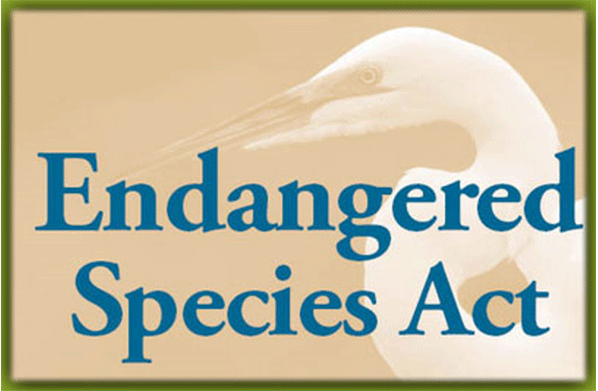A Wall Street Journal editorial this morning begins with an astonishing factoid: the federal government owns almost half the land west of the Mississippi. The federal government owns 48% of California, 62% of Idaho and 81% of Nevada.
Well, it looks like we aren’t going to beef up energy production in a way that makes Europe less dependent on Vladimir Putin. This is because the oil and gas production President Obama touts when he needs to show that his administration isn’t halting energy production occurs largely on privately-owned land. The feds under this administration are hostile to fossil fuels.
But the federal government wants to control more. With the support of green activists, the federal government is using the Endangered Species Act to prevent economic development in an even greater swath of the country.
The Department of the Interior is making a decision momentarily on whether the prairie chicken is endangered and is adopting measures to protect the sage grouse and possibly add it to the Endangered Species List. If this happens, energy production in 11 states could be hampered or in some instances shut down.
Much of the birds’ habit is on private land, but no matter. The federal government could enact invasive measures to protect the grouse and prairie chicken. If these species are deemed under threat, activists will enter the picture:
Environmental groups have won victories by using a strategy called "sue and settle" under which groups propose species for protected status and then sue the federal government, which settles the lawsuit on terms favorable to the greens rather than fight. These settlements typically bypass a thorough review of the scientific evidence and exclude affected parties, such as industry and local communities.
According to Kent Holsinger, a natural resources attorney in Denver heavily involved in these cases, "Wildlife Guardians and Center for Biological Diversity have been party to more than 1,000 lawsuits between 1990 and the present." The Center for Biological Diversity has made no secret of wanting to end fossil-fuel production in the U.S.
…
Huge swaths of land that would go off limits to development are some of the nation's most productive oil and gas fields. The prairie chicken sits atop Texas's Permian Basin oil bonanza, and the sage grouse is near the Bakken Shale in North Dakota. An Interior Department report describes the impact on the sage grouse of oil and gas operations as "universally negative and typically severe," even though modern horizontal drilling leaves a much smaller footprint than in the past.
It was probably inevitable that the Obama Administration's alliance with greens would come into direct conflict with the economic boon the West is enjoying from shale gas and oil development. The Interior Department may say the ESA requires protection for the sage grouse and prairie chicken, but the damage to human beings would be enormous.
Conservation of our natural beauty is laudable. But the green lobby has moved beyond sensible protection of the environment to a kind of radicalism that lacks all balance. For example, despite widespread support for building the Keystone Pipeline XL, which would create American jobs at a time of economic stagnation, environmentalists have been successful in getting President Obama to stall. Studies show that the pipeline would have virtually no effect on global warming and the project has shown that it would not harm the environment in all sorts of studies. But that is not enough for the greens, who have persisted in thwarting the pipeline.
The green vision is both radical and static: proponents of this view are not able to accept that the environment has changed throughout history (and prehistory, too) and that species have sometimes changed or ceased to exist. I'd call their attention to–you know–evolution.
Ronald Reagan once addressed this environmental dynamism in a flip way. “How much do you miss the dinosaurs?” Reagan asked. “Would your life be richer if these giant prehistoric lizards occasionally settled on your front lawn?”
We should protect species—but in a sane manner that recognizes that changes happen. Nature is dynamic, not static. We should be able to protect species that are endangered but not at the expense of our economic wellbeing. This is an area in which there must be compromise. Don’t count on any give and take from the greens, however.
Meanwhile, Vladimir Putin must love those U.S. sage grouses, which will help him ride roughshod over the Ukraine, should he so choose.


